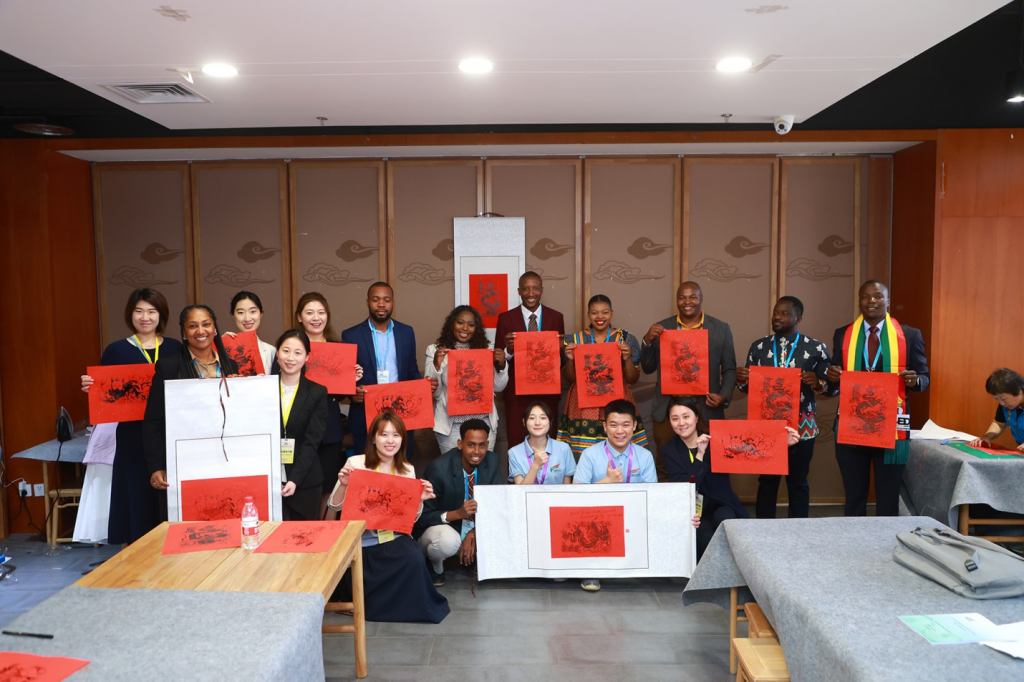By Gerald Mbanda

China and African countries have forged collaboration in various fields that promote the well-being of the people on both sides, as well as promoting cultural exchanges and understanding of each other’s civilization. China and Africa, both rich in history and potential, have recognized the importance of engaging their youth to build a foundation for sustainable development. Youth exchanges between these regions serve as a catalyst for deeper ties, encompassing education, culture, technology, and environmental stewardship.
Over 60% of Africa’s population is made up of youth under the age of 25. Similarly, China, with its vast demographic, is home to a burgeoning generation eager to engage globally. According to a 2024 survey by CGTN and Renmin University, 98.7% of young Africans view China as a successful country, and 96.7% express a desire to travel, study, or visit China. This enthusiasm underscores the potential of youth exchanges in bridging cultural and developmental gaps.
China has progressively increased scholarships for African students, from 30,000 in 2015 to 50,000 by 2018. By 2022, over 80,000 African students were enrolled in Chinese universities, marking a 770% increase since 1996. These students, upon returning to their home countries, bring back valuable skills in fields like medicine, engineering, and technology, contributing to local development. One can confidently say that education stands at the forefront of China-Africa youth cooperation.
The China-Africa Youth Festival Programs have played a key role in connecting the youth on both sides. The 7th edition in 2023 hosted 49 youth representatives from 48 African countries, offering them insights into China’s culture, technology, and governance . Such initiatives not only enhance academic knowledge but also foster intercultural understanding.
Cultural diplomacy plays a pivotal role in strengthening China-Africa relations. The China-Africa Youth Festival, for instance, showcases traditional music, dance, and art from both regions. Participants engage in workshops, performances, and dialogues, promoting mutual respect and appreciation. A notable example is the collaboration between African drummers and Chinese folk dancers, highlighting the universal language of music and dance.
These cultural exchanges extend beyond festivals. In 2024, UNFPA Kenya hosted a Chinese youth delegation, facilitating discussions on digitalization, sexual and reproductive health, and climate change. This collaboration led to joint projects, such as the development of Imara TV, a platform disseminating sexual and reproductive health information through short films.
The China-Africa Youth Festival has become a hub for young entrepreneurs from both regions to exchange ideas on innovation, technology and business. Sessions focusing on trade, entrepreneurship, and technology have led to partnerships in mobile payment solutions tailored for African markets, leveraging China’s advancements in digital payments and Africa’s growing mobile user base. Furthermore, initiatives like the China-Africa Youth Dialogue, organized by the African Wildlife Foundation and Friends of Nature, connect young conservationists to discuss biodiversity and environmental challenges. These dialogues have influenced international conventions, ensuring youth perspectives are integrated into global environmental policies.
Environmental issues transcend borders, and youth from China and Africa are at the forefront of addressing them. Collaborations between Chinese and African youth have led to joint conservation projects, promoting sustainable practices and biodiversity preservation. These efforts not only protect ecosystems but also empower communities to engage in environmental stewardship.
 Africa -China Review Africa -China Cooperation and Transformation
Africa -China Review Africa -China Cooperation and Transformation
